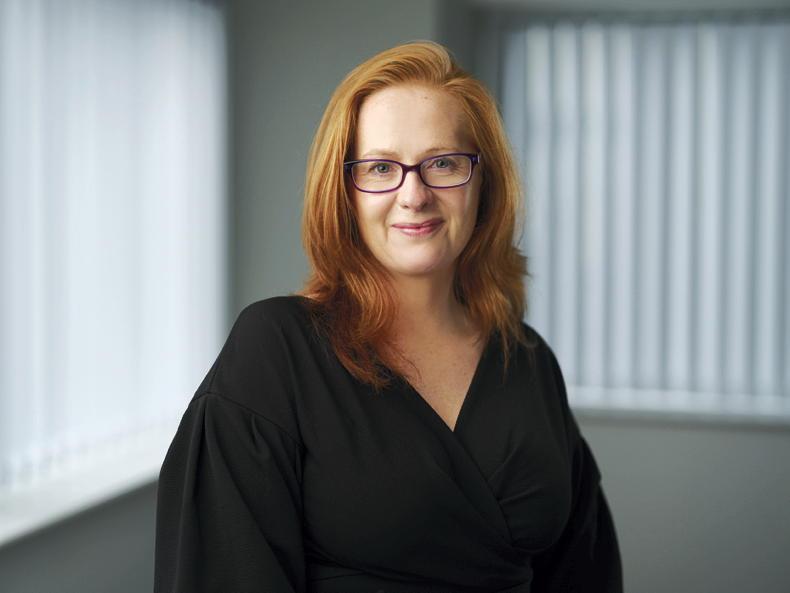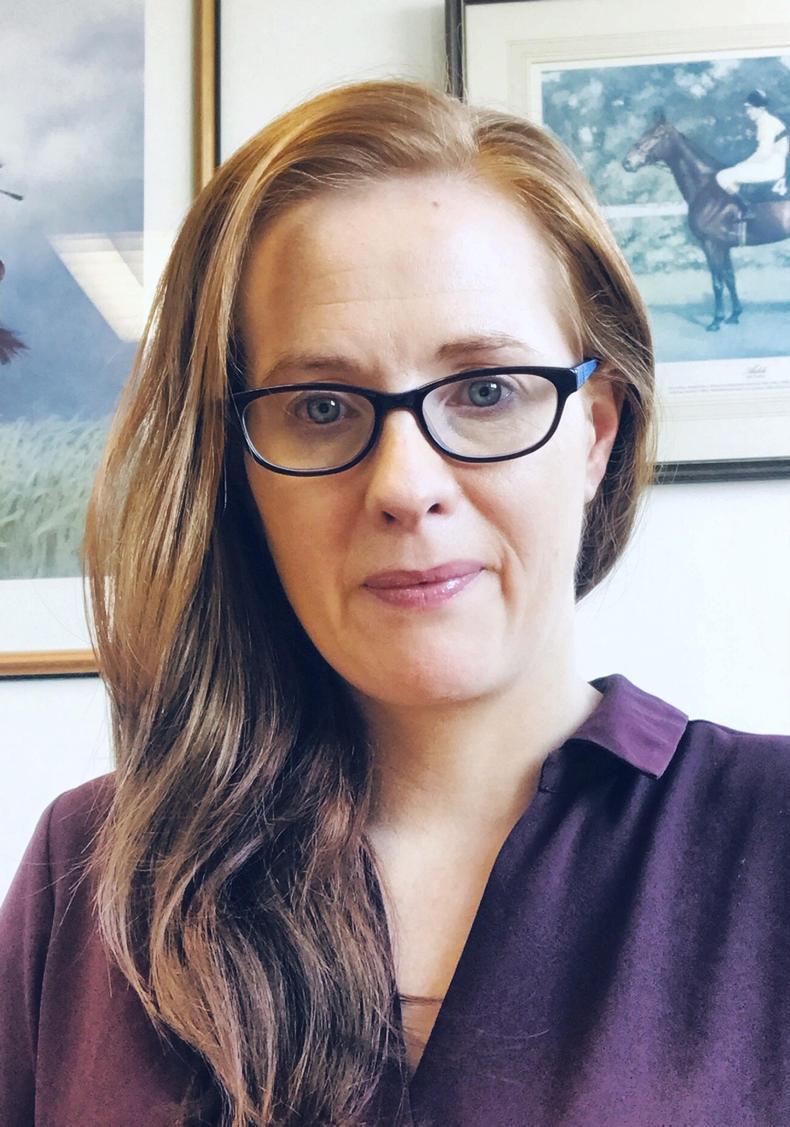Q: Weatherbys has been involved in racing administration for centuries. In recent times the company has expanded into other jurisdictions and was recently appointed by the Emirates Racing Association to develop its new racing platform.
Are you intentionally looking to diversify your business into this area?
Russell Ferris: We are now operating in four Middle Eastern countries supplying software solutions and digital products and services. On the reverse side, we’re supporting the growth and ambition of racing in the Middle East, which we hope will provide further export options for Ireland.
Q: We’re seeing higher profile racing in the Middle East, in places like Saudi Arabia and Bahrain, where Weatherbys is also involved in racing administration. Is that where all the growth is?
RF: I think looking to the East is the way forward, whether it be the Middle East or China, or Australia. The western market is a constant. However, there has been a global reduction in the production of thoroughbreds has reduced in recent years, which is concerning.
Q: Does that partially explain the surge in prices at the sales? Is the supply not meeting the demand?
RF: In recent years, we have certainly seen the Middle East buyers being more proactive, particularly at horses in training sales. Through Covid, there seemed to be a vast amount of cash available for spend on bloodstock, as one of the few sports that continued more or less unaffected through Covid.

In terms of supply, I think we are meeting the demand. However there are concerns, as I mentioned earlier, in terms of the global foal population. If we consider Italy and Germany, two traditionally very strong breeding and racing entities; their annual foal numbers have dropped significantly in recent years.
However, we are seeing growth in foal numbers in countries such as Saudi Arabia, which is particularly interesting from a breeding perspective. Their climate allows them to breed and race all year round. They have 1,800 foals being bred currently and their ambition is to double that in the coming years Like most emerging nations, they will need to import horses from places like Ireland, to ensure they continue to improve the quality of their stock.
Sharon O’Regan: I have spent a good bit of time in the last couple of years in the Middle East and there’s definitely a passion to grow the sport. It’s socially and economnically important to them, it’s good for tourism and it has Government support, so it ticks all the boxes.
Q: How has Weatherbys managed to win those Middle Eastern contracts?
RF: There was a vision and an effort in this business to harness our expertise and knowledge and apply that to the digital transformation process, and in its applications.
We contracted an external company, TEKenable, in Dublin. They have become an intrinsic part of our business. With them, we developed a stud book, racing administration platform and the Weatherbys ePassport, which creates a data model that is both scalable and responsive to each jurisdiction’s requirements (legislation, commercial etc).
Every racing jurisdiction handles it administration slightly differently but the platform we developed could be described as ‘plug and play’. So we have been able to go into those countries and re-engineer it to fit their needs.
TEKenable are also working on the Racing Digital project in Britain, which is a joint venture between Weatherbys and the British Horseracing Authority.
SO’R: And we are lucky in that we’ve an extremely talented team within Weatherbys who hold a vast knowledge of all things breeding and racing. This allows us to support and advise other breeding and racing jurisdictions, across a multiple of area, et cetera.
Q: How many foal registrations does Weatherbys Ireland process in a year and how long does one take?
SO’R: We register close to 9,000 annually, that would be about 90% of that year’s foal crop. Around 75% of those arrive with us during a two-week period in July. The deadline date is July 31st.
The majority of foals are born across April and May, which gives the registrations team here about eight weeks to turn them around, in terms of sales entries ahead of the key foals sales. So with a small team we have to operate in this really high pressured tight window.
Q: What’s the one thing breeders could do that would make your life easier?
SO’R: Don’t leave their foal registration to the last minute. We would encourage every breeder to complete and submit their application within 30 days of the foal’s birth.
Q: Why is July 31st the deadline?
SO’R: It’s driven by the turnaround time for the autumn sales catalogues. We need time to take in your paperwork and validate all of that information. Weatherbys are responsible for the integrity of that data. If that animal goes to commercial sales or goes to compete, or be sold abroad, the Weatherbys passport is trusted. And that’s because we put a huge amount of work into ensuring that everything about that animal, at that point in time when it’s registered, is correct.
You can’t do that for 9,000 foals overnight. A standard parentage verification would take us maybe 10 to 15 days. On top of that you have to communicate with the stallion owners, you have to prove that the gestation period was correct, that the covering dates are right.
Then you have the veterinary side of it. You have to ensure that the vet is registered, that they have used the right type of microchip, and that the physical markings have been noted, and that the mare herself is correctly registered, as well as the stallion.
There’s a lot of cross-checking and validation before you can output a report which becomes your passport. It has to be 100% correct. We do about one million transactions, in terms of validation points and checks, in any year.

Q: July and August are peak holiday months. How do you manage that?
SO’R: We don’t take holidays during those times. You might get the odd day off, but it’s very tight. We’re lucky to have such a great team who understand the turnaround time and the importance of getting the foals registered.
Q: Do you get many complaints or problems with registrations?
SO’R: The majority of issues from our perspective probably relate to disputes over ownership or lack of knowledge around registration. It could be a newcomer to racing who buys a racehorse or a broodmare but has no idea how to register it for racing or breeding.
RF: Sometimes the holder of the passport is the horse’s keeper, not the legal owner. The passport is an identity document, not an ownership document.
We have a very, very strong, educated and experienced team here and they can answer most questions. But sometimes we are almost giving legal advice and that’s not our responsibility. We don’t want to be in that position. We are not there to legally adjudicate who owns or doesn’t own a horse.
In Britain, the Chartered Trading Standards Institute will investigate and resolve those cases. We don’t have that in Ireland and that’s difficult for us because it puts us in a very precarious position in that we are being asked to adjudicate. It shouldn’t be our role or responsibility. A Trading Standards equivalent in Ireland would be wonderful.

Q: Are you aware of many ownership disputes going to court?
SO’R: We wouldn’t know the number that would go to court but we probably get at least one ownership dispute query a week. Ownership is a legal requirement in Ireland but not many keepers are aware of this and that it must be done within 30 days of acquiring a horse.
Q: Can you not just refuse to deal with those cases?
SO’R: We willl advise all parties it’s a civil matter and the passport is an identity document which must remain with the horse at all times. Any ownership change will be on hold until the case has been resolved.
RF: But the legislation requires us to register the animals. There has to be a keeper, there has to be that identification. So legislatively we have to try and complete documentation which is required under law. But if there’s a civil dispute we are liable to be told by one party that we are doing our job incorrectly. Last month Horse Racing Ireland introduced a formal process for dealing with ownership disputes which was a welcome move.


 This is a subscriber-only article
This is a subscriber-only article
 It looks like you're browsing in private mode
It looks like you're browsing in private mode












SHARING OPTIONS: